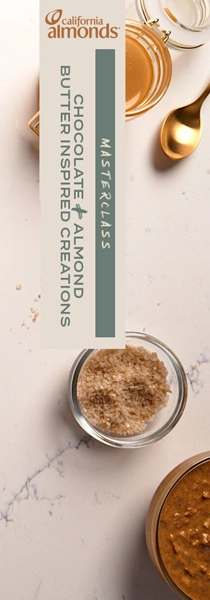
- Industry news
Industry news
- Category news
Category news
- Reports
- Key trends
- Multimedia
- Journal
- Events
- Suppliers
- Home
- Industry news
Industry news
- Category news
Category news
- Reports
- Key trends
- Multimedia
- Events
- Suppliers

Besides having good functionality the new systems are economical to use, as an example from the Arab countries shows. A customer asked for a stabilizing system based on milk protein – without gelatine or starch – for a firm-set yoghurt.

6 Nov 2009 --- Considering the enormous diversity of fermented dairy products around the world it is quite some challenge to manufacture them economically while maintaining a high quality standard. Overall conditions in each country, such as available raw materials and statutory regulations, have to be kept in mind as well as factors specific to the product itself. Processing equipment, production methods, transportation, storage and distribution have to be considered too. And, not least, customers’ changing wishes. With the new stabilizing systems from the STABISOL J and STABIPROT series, Hydrosol offers a tailor-made solution for every product – whether the cultures are thermophilic or mesophilic.
“The requirements of the international markets are so individual that we constantly have to develop new, tailor-made solutions for a broad clientele – and we have been doing that for over 20 years. Nearly every day customers approach us with new needs and requests”, says Thies J. Meier, head of Applications Technology. One recent example is the topic “modified starch”. Customers no longer want this as an ingredient. Partly because modified starches have to be declared in the ingredient statement, and partly because consumers tend to assume the word “modified” means “genetically modified” and no longer buy the product. They are even prepared to pay more for starch-free products.
But the problem is that modified starch has excellent functional properties. First, it binds whey and water; secondly, it makes the product more capable of transportation and better able to withstand temperature fluctuations. Moreover, starch acts as a protective colloid for the protein. So the task is to develop new stabilizing systems that guarantee high-quality products even without modified starch. Thies J. Meier: “A customer asked us to make a sour cream that would meet clean labelling requirements. It also had to be suitable for cooking, without flocculating when heated, and should have good whitening properties. We solved this problem with a combination of proteins and pectins. Milk protein has no E number, and pectin has a very positive image in the eyes of consumers.
Hydrosol’s applications technologists have also developed an alternative to starch for stabilizing yoghurt. “In our new functional systems from the STABISOL J series we combine dietary fibres with hydrocolloids like pectin and carob gum with special milk protein fractions”, Meier explains. “The dietary fibres provide the necessary texture and help to bind water. The milk proteins give the product its full, creamy mouth feel and also bind water. Hydrocolloids protect the milk protein and round off the texture. The new stabilizing systems then have the same functionalities as the older compounds containing starch.” The composition of these functional systems depends to a great extent on the fat content of the fermented products. A yoghurt with 3.5 % fat, for example, needs less proteins and fibres to create a pleasant texture than a low-fat yoghurt. So Hydrosol makes up the stabilizing systems individually to suit the particular fat content.
Besides having good functionality the new systems are economical to use, as an example from the Arab countries shows. A customer asked for a stabilizing system based on milk protein – without gelatine or starch – for a firm-set yoghurt. He also gave clear specifications as to the price. The result was a stabilizing system that achieves the desired texture and consistency with the aid of special functional milk proteins and pectin. And the low dosage helps to make it a profitable solution too.
From the wide range of STABISOL J and STABIPROT products, Hydrosol creates the ideal stabilizing system for yoghurt, quark or cream cheese preparations, sour cream and the like to suit each particular case. Not only do the new systems from the STABISOL J series have a high level of functionality; they are also very attractive from the point of view of economy. They permit the efficient manufacture of high-quality end products.
The functional systems from the STABIPROT range consist entirely of proteins and therefore lend themselves very well to clean labelling. For example, they can be used in classic yoghurt which can then be marketed simply under the trade designation “yoghurt”.
When developing functional systems it is essential to have a detailed and up-to-date knowledge of the numerous milk protein fractions and their interactions, as Thies J. Meier explains: “The number and diversity of the milk protein fractions is increasing continuously as a result of constant progress in production techniques. From this wide choice we can select exactly those proteins the customer needs for his products – no less and no more – and make them up into a functional system. For a stabilizing system must be cost effective, and that means it must be geared precisely to a particular frame of reference. Superfluous ingredients and functionalities are an unnecessary cost factor.” According to the applications technologist, one of Hydrosol’s great advantages is its close cooperation with the other firms in the Stern-Wywiol Gruppe. “Through our intensive exchange of information with our sister company SternLife we have a precise knowledge of the numerous different products. As a specialist in foods for athletes, SternLife has a high level of expertise in proteins. So in this field we always have access to up-to-date knowledge and the latest technologies. An advantage customers can put to good use when seeking ideas for new products.












